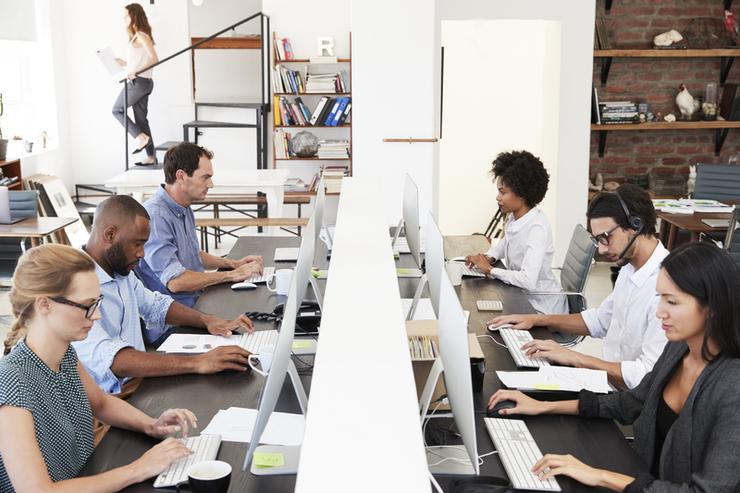 Credit: Dreamstime
Credit: Dreamstime
Before COVID-19, open-plan offices were on the rise. Facebook's new Menlo Park headquarters boasted the "largest open floor plan in the world," for example.
The open-plan office obsession, which probably peaked around ten years ago, was based on what I've called "collaboration bias" — the under-examined assumption that ad-hoc social encounters are more valuable for business, creativity, and productivity than un-interrupted "deep work."
But a series of recent surveys shed new light on the misguided disaster that is the open-plan office and the importance of private offices, regardless of where they are.
A research report called "Remote and Hybrid Working" from the Myers-Briggs Company found that employees sitting in open-plan offices are the least happy, those with private offices, the most. The report also found that back-to-office edicts and policies negatively affect employees and that a mismatch between policy and desired workplace leads to higher employee turnover.
Meanwhile, a recent survey by the company Robert Half found that more than a third of survey respondents (35 per cent) said they get more done at home (where they can work without interruption from co-workers). But nearly half (43 per cent) of employees who work in an office say they perform best in a private office.
Disdain for open-plan offices is greater now than before the pandemic, according to a survey by Framery, which makes sound-proof booths for offices. Some 41 per cent say their ability to concentrate in an open-floor plan office significantly worsened after the pandemic.
It appears that work-from-home (WFH) employees and office workers with private offices have three things in common:
- They have private offices.
- They're happier.
- They get more done.
All this new data makes me wonder: How much of the employee's desire to work from home is ultimately a desire to have a private office or at least a space where interruptions from co-workers can be controlled?
After all, working from home isn't for everybody.
While objectively, it saves time, increases flexibility, boosts autonomy, saves money, and provides other measurable benefits, it also reduces social contact with workers, limits available tools for work, and reduces the availability of tech support.
You can measure the measurables, but the reality is psychology rules regarding remote work's appeal (or lack thereof). Some people love it. Some hate it. Many are somewhere in between.
In the middle of the Great Resignation, with companies struggling to hire and fill the skills gap in IT — and working hard to retain employees — it seems to me that dismantling open-plan offices and building more private-office space is an overlooked tactic that companies could use to attract and keep their best employees.
Of course, different companies have different constraints (budgetary and otherwise), as well as different missions, approaches to work and management, and other factors. So there isn't a one-size-fits-all answer here.
But it seems that the best policy for employee satisfaction and productivity is pretty simple: Everyone who can work remotely can choose where and when to work — in the office full-time, part-time, or never. But those who choose to work in the office can expect their own private office.
That approach will not only make employees happier and more productive, but it will also likely boost the number of staff choosing to work in the office.




